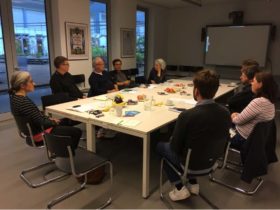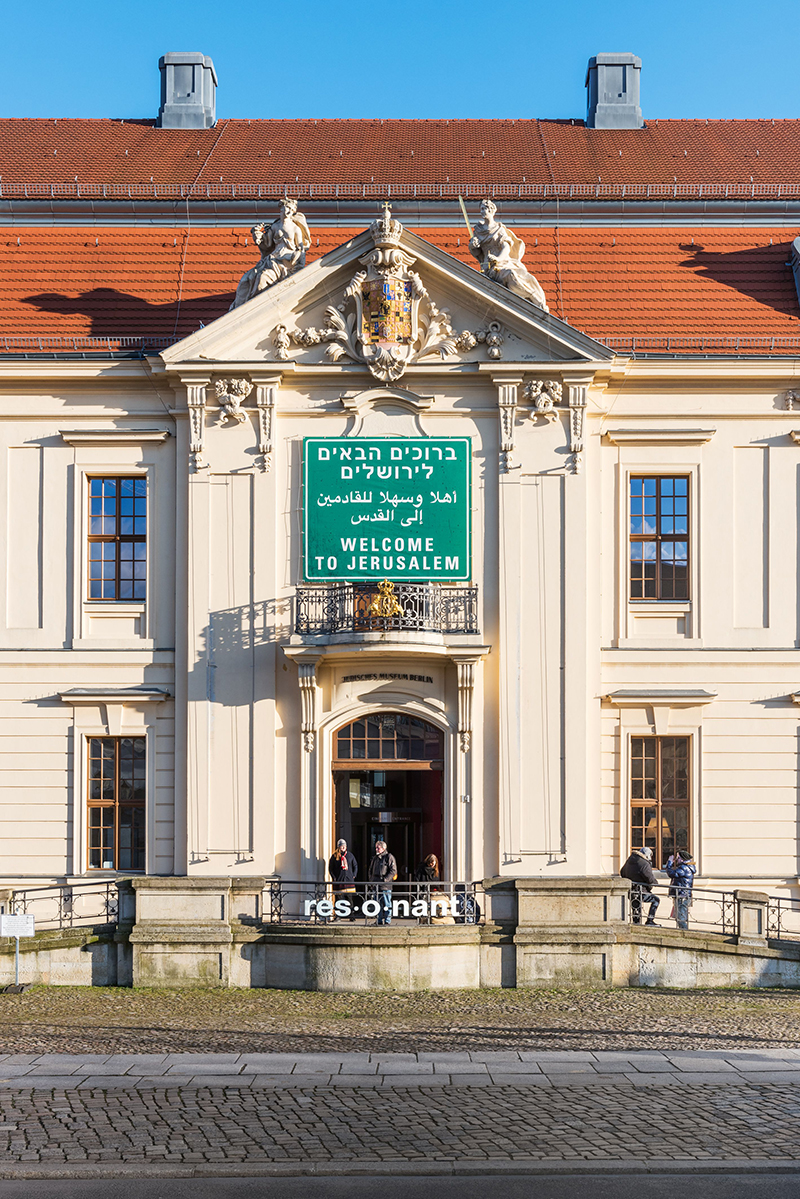A conference on anti-Semitism-critical adult education
My W. Michael Blumenthal Fellowship at the Jewish Museum Berlin on the topic Didactics of the Middle East Conflict ended in the beautiful month of May. During the past seventeen months, I have been intensively engaged with continuing education on this politically contentious and very emotionally charged topic, as well as with the question of what we as teachers of social studies or educators working outside of school systems can or should not do, in order to best approach the topic of the Near-East conflict with students (more at: www.jmberlin.de/fellow-rosa-fava-and-her-research).

Discussion of the participants; photo: Berivan Köroğlu
In retrospect, one of the highlights of the conference, which I organized in early April 2018 in order to bring together educators focusing on the Middle East conflict and Anti-Semitism with museum employees working in the areas of education and the Academy programs. Since the first conference in September 2017, the parameters had changed somewhat, since the opening of the Welcome to Jerusalem exhibition made the Middle East conflict an (even bigger) presence at the Jewish Museum. → continue reading
On the difficulties the organizers of the “Welcome to Jerusalem” exhibition encountered doing justice to the ideal of justice

The much-discussed sign outside the museum, Jewish Museum Berlin, photo: Jule Roehr
In the Islamic tradition and in the Koran itself, the biblical story of David and Uriah is told in a metaphorical form that differs from the version in the Bible (Koran: Sura 38/21–25): two brothers come to King David and ask him to settle a dispute between them. One of them describes the situation. He tells David that his brother has 99 ewes, but he himself only has one. Now his brother was pressuring him to give him his only ewe. Directly after this brief depiction, David passes his judgment: the one brother’s desire to add the one ewe to his 99 was an injustice to the other brother. The judgment could have been the end of the story, had David not suddenly realized that his decision was unjust. He regretted it deeply. Many Muslim commentators have discussed the sudden turn in the story. One explanation for why the judgment is unjust despite the clarity of the situation is that David made his decision after hearing only one side. In this interpretation, the moral of the story is that in conflicts or disputes, both sides must be allowed to present their perspectives and arguments. → continue reading

